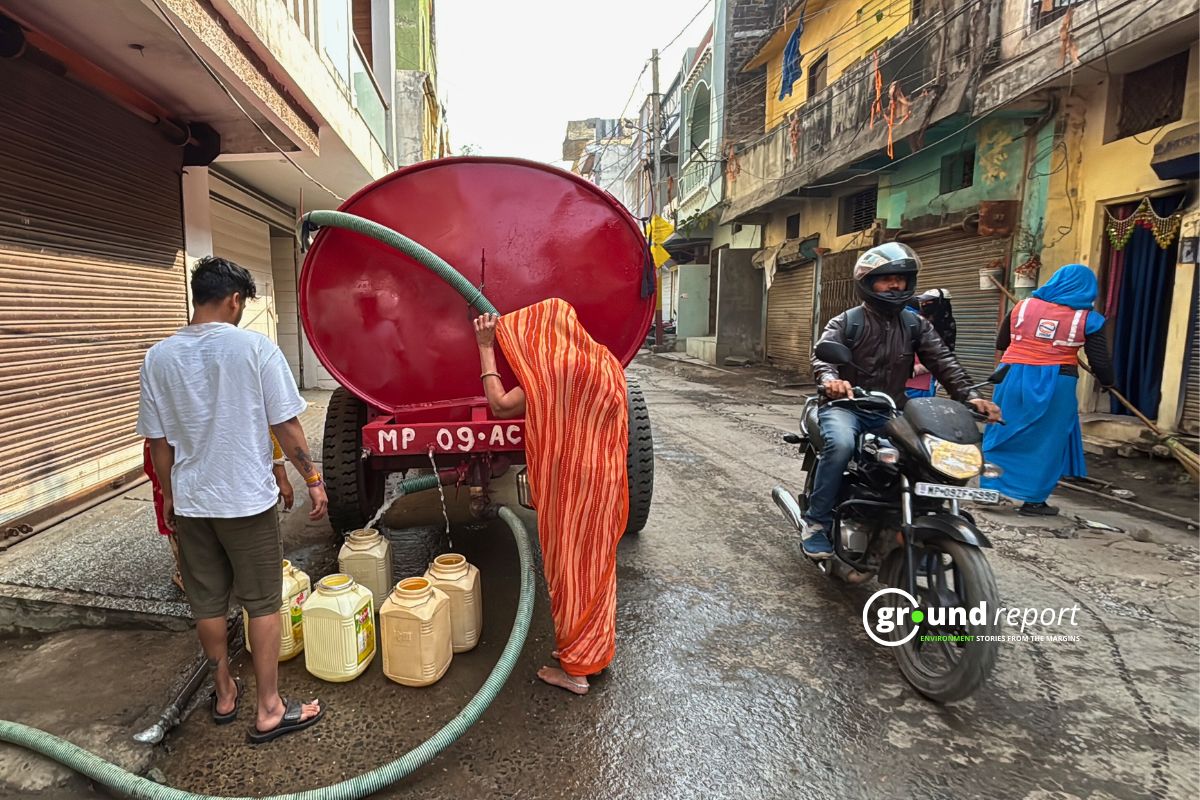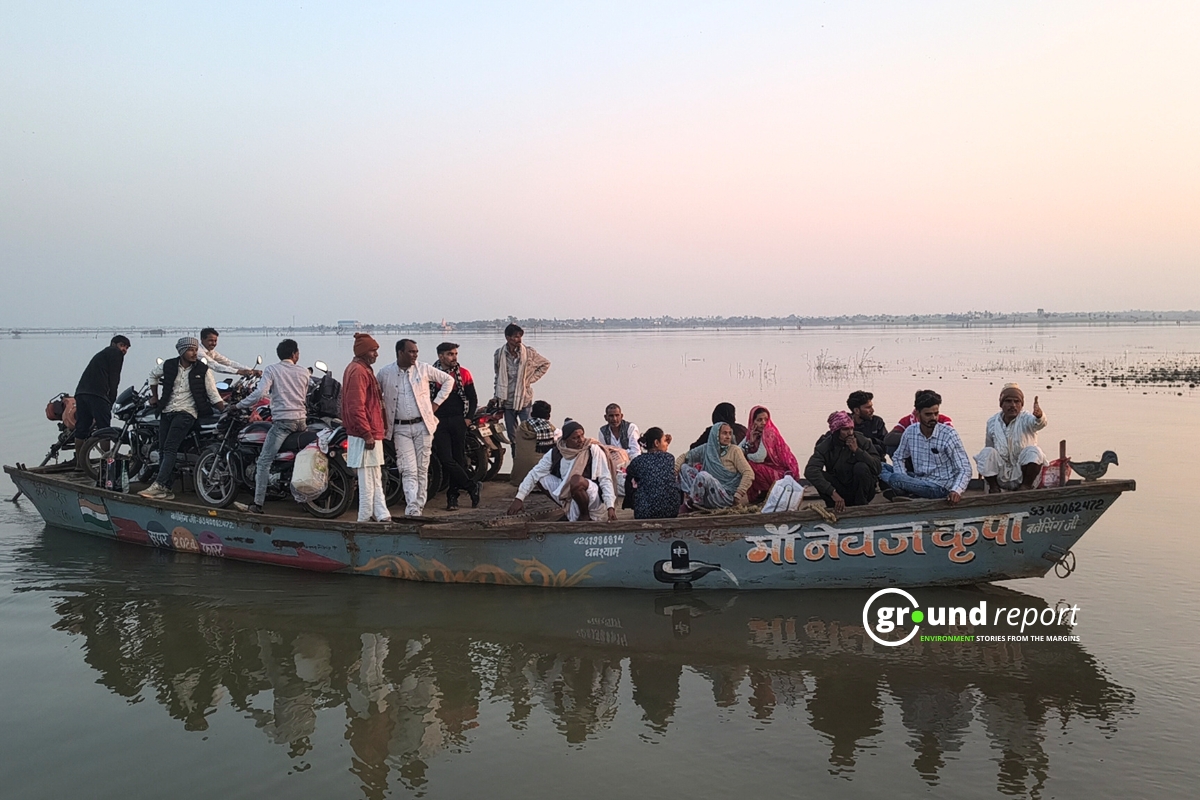The Union Ministry of Women and Child Development hasn’t audited the impact of climate change on women and children, as revealed by Minister of Women and Child Development, Annpurna Devi in a written reply in the Lok Sabha.
No audit on climate impact, says Minister
The Ministry of Women and Child Development, the Union Ministry of Environment, Forest and Climate Change (MoEFCC), and the Union Ministry of Earth Science informed the Lok Sabha that they have not conducted any audits on this issue. This lack of assessments is troubling, given the acknowledged gender-specific impacts of climate change.
“The United Nations Framework Convention on Climate Change (UNFCCC) has emphasized that women from lower economic backgrounds are disproportionately affected by climate change. These impacts are not gender-neutral, as accepted by studies and reports,” she said.
Shrimati Annpurna Devi admitted in the Lok Sabha that while the global recognition of the non-gender-neutral climate crisis impacts, no specific audit has been conducted in India to evaluate these effects on women and children.
According to the ministry, UNICEF has identified additional vulnerabilities faced by children due to climate change. Children are more prone to dehydration, malnutrition, and health issues from climate-induced crop failures and rising food prices. The organization has emphasized the need for targeted interventions to address these vulnerabilities effectively.
Recent study findings
Citing a recent 2024 study by M.S. Swaminathan Research Foundation (MSSRF) on the implications of climate change on women and children in different agro-ecological zones in India, the Minister informed, “Women and children in Bihar, Gujarat, Uttar Pradesh, Maharashtra, Madhya Pradesh, Andhra Pradesh, West Bengal, and Telangana are especially vulnerable to climate-related disasters.”
Children exposed to climate hazards are more likely to experience stunting, underweight conditions, and increased susceptibility to early pregnancies.
“Accoridng to the study, Exposure to drought events increases the likelihood of underweight women by 35%, child marriage by 37%, teenage pregnancy by 17%, and intimate partner violence by up to 50%,” the Minister said.
The Government recognizes the adverse impact of climate change on women and children. Annapurna Devi said, “It has taken steps to mitigate the vulnerabilities.”
Government initiatives
Despite the lack of specific audits, the Ministry stated that the government acknowledges the adverse impact of climate change on women and children and has taken steps to mitigate these vulnerabilities. The National Programme on Climate Change and Human Health (NPCCHH) was launched by the Ministry of Health and Family Welfare (MoHFW) in 2019 to reduce health vulnerabilities related to climate variability and extreme weather events, particularly among vulnerable groups.
The main policy framework is the National Action Plan on Climate Change (NAPCC). It includes National Missions in areas such as solar energy, energy efficiency, water, agriculture, the Himalayan ecosystem, sustainable habitat, health, green India, and climate change knowledge. 34 States and Union Territories, including Andhra Pradesh, have prepared State Action Plans on Climate Change (SAPCCs) per NAPCC’s objectives.
Government schemes address women-related challenges in the context of climate change, including Ujwala Yojana for clean cooking gas connections, Har Ghar Nal se Jal under Jal Jeevan Mission for tapped drinking water, Swachch Bharat Abhiyaan for household toilets, and Pradhan Mantri Awas Yojana for housing, aiming to reduce women’s drudgery, improve their health, and empower them.
The MoHFW has prepared information, education, and communication (IEC) materials to raise awareness about extreme weather events. Public health advisories on climate-related issues are issued to States and Union Territories. The MoHFW exchanges surveillance information with the National Disaster Management Authority (NDMA) and the India Meteorological Department (IMD) for reviewing preparedness and action.
Keep Reading
No EIA conducted for sagarmala projects in Assam, Govt tells Lok Sabha
32 missing after cloudburst in Himachal Pradesh’s Shimla
Madhya Pradesh receives half of monsoon quota in 38 days
Puga Valley: India’s first geothermal power plant promises clean energy amid environmental concerns
Follow Ground Report on X, Instagram and Facebook for environmental and underreported stories from the margins. Give us feedback on our email id greport2018@gmail.com.
Don’t forget to Subscribe to our weekly newsletter, Join our community on WhatsApp, Follow our Youtube Channel for video stories.






